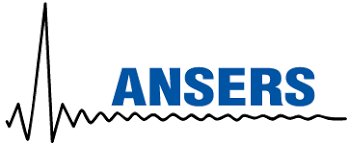Need Help?
- Parlez-vous Français ?
Certainement, n'hesitez pas de nous contacter en Francais par mail ou par telephone.
- Spreekt u ook Nederlands ?
Zeker! Stel gerust uw vragen in het Nederlands via telefoon of E-mail.
- Are reports written in English ?
Reports are standard written in English, but if requested reports are available in French, Dutch or German.
- Is Ansers certified ?
Ansers is certified ISO9001.
Do not hesitate to ask our updated version of our certificate and quality manual.
- Can I visit the Ansers lab ?
Certainly, please ask for an appointment by mail or call us.
- Is Ansers active outside Belgium ?
We serve customers worldwide: Belgium, The Netherlands, France, Spain, Portugal, Germany, Switserland, Italy, Luxembourg, Finland, Chili, Turkey, Russia, Korea, Sweden, India, ....
- How much do we need to pay for the analyses ?
Please feel free to ask for a quotation. We do not have a standard published price list, but we are more than happy to provide you with a detailed proposal.
- In wich form do I get my results ?
This is up to you to decide, from a simple email to an elaborated report.
- How many layers are present in my multilayer film ?
We can analyse your multilayer films and not only determine in detail the number of layers (even coextruded layers), but also measure their thickness and composition.
Therefore we make microtome cuts and visualise the cuts under the microscope using various tools in order to get all information on the number and thickness of the layers.
Moreover we can determine the composition of the various layers using FTIR microscopy and or hotstage microscopy.
- What is the composition of the layers in my multilayer film ?
We can analyse your multilayer films and not only determine in detail the number of layers (even coextruded layers), but also measure their thickness and composition.
Therefore we make microtome cuts and visualise the cuts under the microscope using various tools in order to get all information on the number and thickness of the layers.
Moreover we can identify the various layers using FTIR microscopy and or hotstage microscopy.
Download document
- What is the thickness of each layer in my multilayer film ?
We can analyse your multilayer films and not only determine in detail the number of layers (even coextruded layers), but also measure their thickness and composition.
Therefore we make microtome cuts and visualise the cuts under the microscope using various tools in order to get all information on the number and thickness of the layers.
Moreover we can determine the composition of the various layers using FTIR microscopy and or hotstage microscopy.
- A new lot shows seal problems, why ?
We can make a comparison of the two film samples and check on e.g. a difference in composition, an external contamination or a contamination due to migration of one of the components.
Download document
- What is the composition of a contamination I found in my product?
If you found contaminations
in your products
in your filters
in your packaging material
...
We can analyse it, even if it is hardly visible with the naked eye.
Using FTIR microscopy we can analyse contaminations as small as a few micrometer. If necessary we use the scanning electron microscopy in combination with an EDX detector to obtain the elemental composition of any contamination.
- What is blocking my filter!
We can identify all particles, fibers, ... present on your filters, even the very tiny ones of hardly 20 micrometer. We use FTIR spectroscopy for any organic particle and some inorganic particles often in combination with SEMEDX.
Download document


